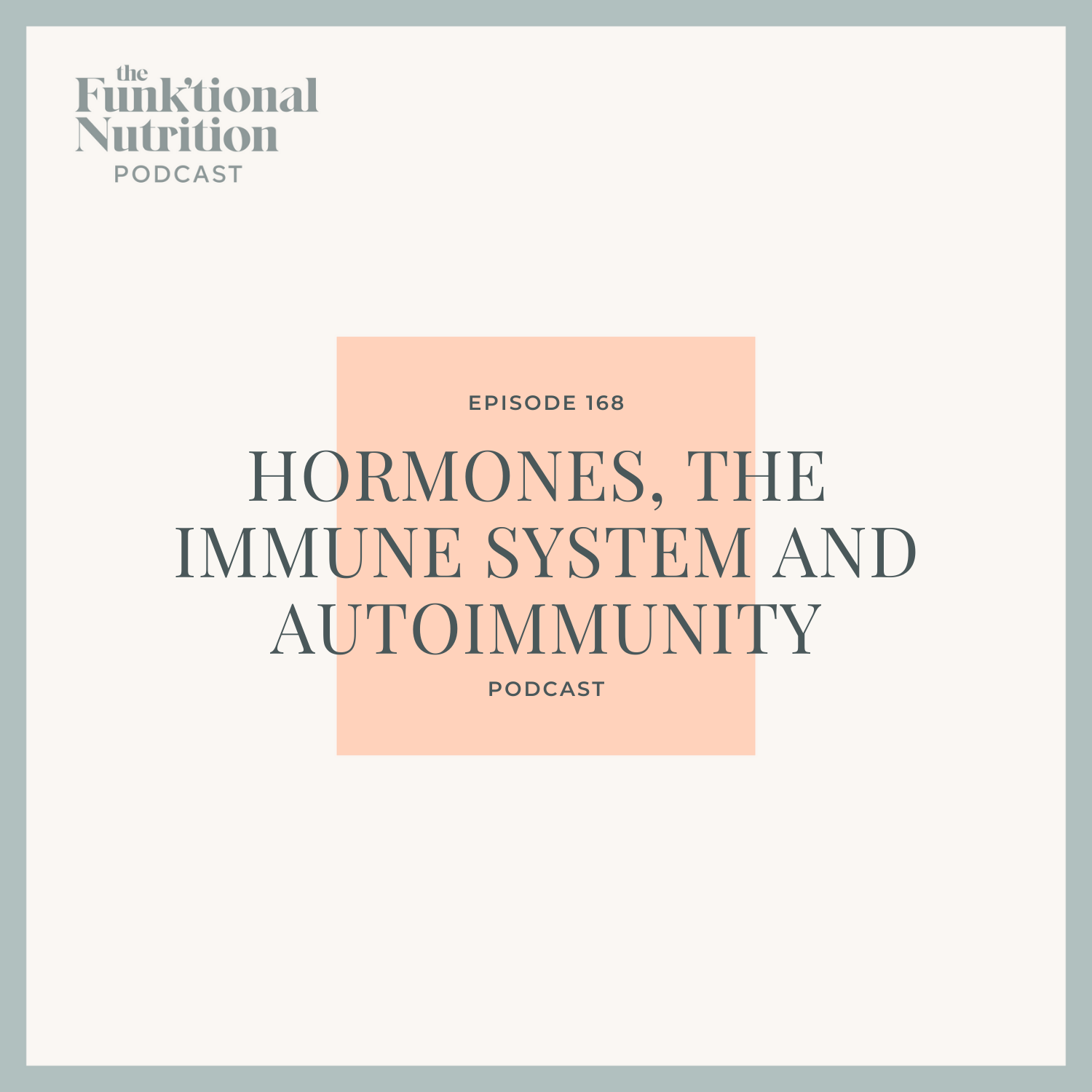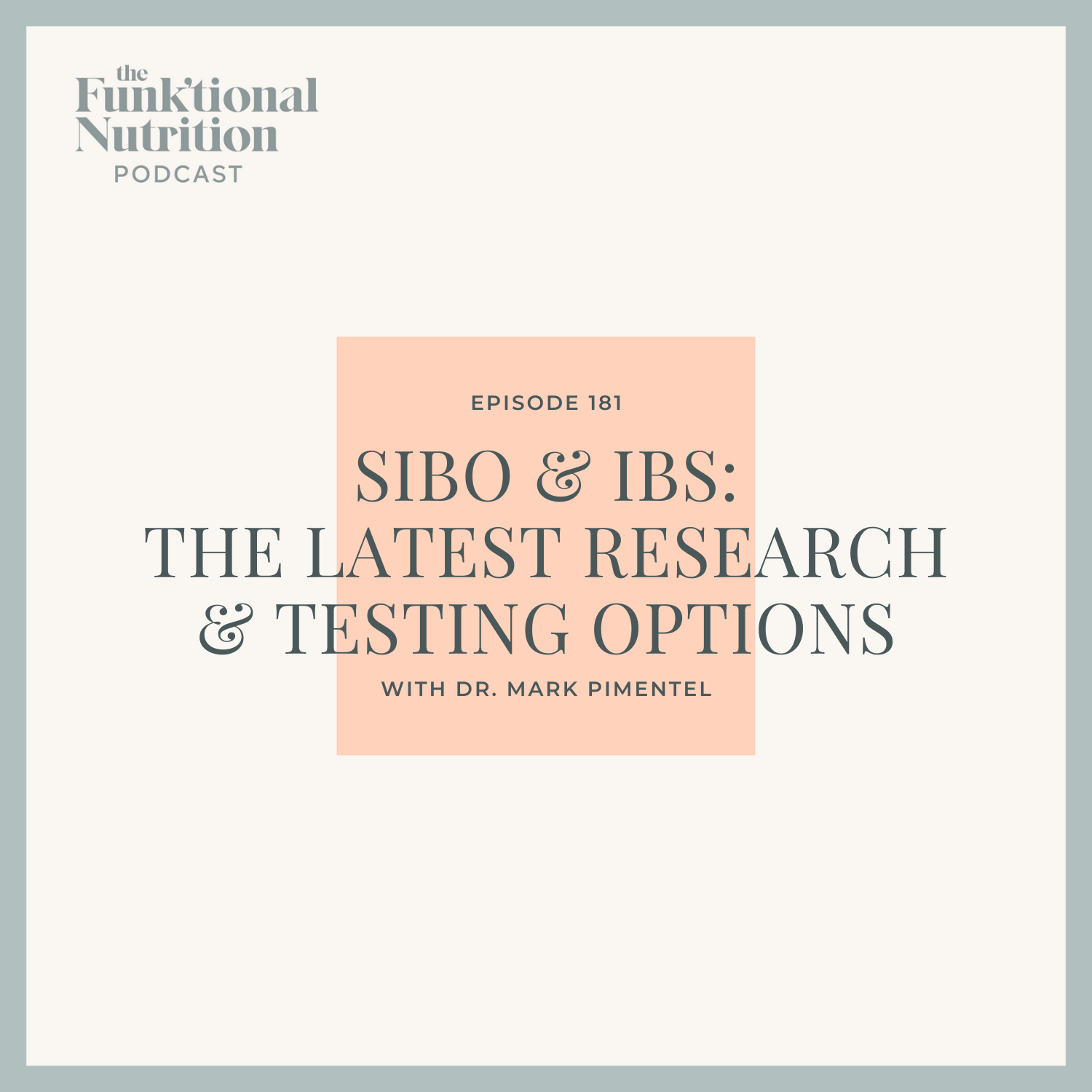Functional Medicine

Autoimmunity
78% of all patients diagnosed with autoimmune diseases are women.
Despite the fact that autoimmune diseases are one of the most common chronic illness, and despite that it’s estimated that 1 in 12 women will end up with an autoimmune disease, there are MANY question marks and knowledge gaps in regards to diagnosis, treatments, and causes.
That’s why we are SUPER passionate about educating our listeners, readers, and clients about autoimmunity here at The Funk’tional Nutritionist.
Red flags that you *might* be dealing with autoimmunity:
You’ve been sick & struggling for years, and nothing has “cured” you.
Certain treatments & interventions may have helped temporarily, but not long term.
You have many food sensitivities and/or chemical sensitivities.
You’ve received many (seemingly random) diagnoses.
You’ve worked with many practitioners, gotten lots of labs, tried lots of things, and you’re still not better.
Does this sound like you?
We want you to understand that healing IS possible. However in order to achieve it, we need a different approach.
A New Approach
On average, it takes over 4 years and up to 20 medical professionals to receive an autoimmune diagnosis. Oftentimes, these mystery syndromes are written off at hypochondria—45% of autoimmune patients have been labeled as "chronic complainers."
Part of the problem here is that the conventional approach is geared towards identifying pathology and disease. With the conventional medicine approach, you either have a disease or you do not have a disease—if you do not have a disease, you are considered healthy.

In reality, autoimmunity exists on a spectrum, and we classify it in 3 stages.

With autoimmunity, your immune system makes antibodies against specific target proteins in your body. These elevated antibodies are present in all stages of autoimmunity.
Stage 1 can be considered predictive antibodies, where the autoimmune process is happening, but there are no clinical symptoms.
Stage 2 is autoimmune reactivity and inflammation. This can be a frustrating time for a lot of people, since they’re searching for answers as to why they feel poorly. This is where folks get labeled as “chronic complainers” and hypochondriacs—because despite the symptoms, tests keep showing up as “normal.”
The most maddening part is that it doesn’t get classified into autoimmune disease (stage 3) until tissue is destroyed. By that point, the autoimmune process is well underway and it can be difficult to untangle.

Let’s use Hashimoto’s, a common autoimmune condition, as an example.
Hashimoto's is IMMUNE dysregulation with an ENDOCRINE fallout. The conventional approach is to only address the endocrine piece (read: thyroid), which is why conventional MDs and endocrinologists monitor TSH (and usually T4 as well). They are waiting for enough damage to the gland (stage 3) where the gland stops producing adequate thyroid hormone and it needs to be replaced through medication.
The functional approach is to screen for thyroid antibodies: TPO and thyroglobulin antibodies—to catch the elevated antibodies early and make the appropriate changes to support the immune system BEFORE it progresses to stage 3. That’s not always possible, but that’s the ideal scenario. (Note: This is why we run a FULL thyroid panel in Your Hormone Revival.)

The functional approach recognizes that illness doesn’t just pop out of thin air. The labs and reference ranges we use are trying to assess for early prediction and to identify imbalance of normal physiology so we can address these underlying dysfunctions and root causes—ideally before it gets to a pathological disease state. With this approach, we have the opportunity to restore balance and prevent or reverse the disease state.
There are more than 100 autoimmune conditions, but the exact causes are unknown.
Despite the fact that autoimmune diseases are one of the most common chronic illnesses in the world, the exact etiology of autoimmune diseases remains largely unknown.
This is kinda bullshit for the millions of people diagnosed with an autoimmune illness (not to mention the millions still struggling to find a diagnosis).
What we *do* know is that environmental factors are a contributing factor to the web of autoimmunity,
In order to manage autoimmunity, we must understand the unique triggers for each person. Understanding your unique factors can be part of the healing process.
BLOG POST
How to Test for Autoimmune Triggers & Root Cause
Contributing factors to autoimmunity:
Infectious agents & molecular mimicry
Microbiome imbalance
Genetic factors
Barrier breakdown
Chemical exposure/environmental toxicants
Industrialized (modern) diet
Childhood Traumatic Stress ACEs
These are all the factors we tuck into here at The Funk’tional Nutritionist when working with autoimmunity.
Understanding
Autoimmunity Series

Food & Autoimmunity
Rates of autoimmune and allergic diseases are on the rise (in adults AND children) including food allergies, type-1 diabetes, ulcerative colitis, and eczema. Autoimmunity is more prevalent than cancer. There is no cure, and conventional medicine doesn’t have a decent understanding of what causes it.
Root cause medicine, however, looks to our modern diet as one driver of autoimmunity.
Why is modern food such a problem?
Due to food processing, chemical additives, food coloring, and pesticide use, the antigenicity (or immune reactivity) of food has changed. This is not a good thing. We don’t want our immune systems to be reacting to food proteins.
Our environment—including our food—is changing faster than our immune system has been able to adapt. Our genes haven’t altered in 75 years, but there has been a huge increase in chronic illness. We must look to our environment, lifestyle, and food to understand why our immune systems are freaking out.

“
Our immune system does not exist in isolation from daily experience.
— Gabor Mate
HOW ENVIRONMENTAL CHEMICALS CAN TRIGGER AUTOIMMUNITY
Chemicals & Autoimmunity
Chemicals can bind to our own tissue proteins. Once this happens, that tissue now appears as a foreign antigen to the immune system. The immune system creates antibodies against it, tagging it for destruction and removal.
20% of healthy people demonstrate immune reactivity to chemicals.
An example of this is BPA (found in many plastic products) which has an affinity for binding to human albumin. This can start the autoimmune process in some individuals.
“Some environmental chemicals can bind to a high-molecular-weight carrier protein such as human serum albumin (HSA), causing the immune system to misidentify self-tissue as an invader and launch an immune response against it, leading to autoimmunity." (Source: NIH)
HOW HORMONES CAN AFFECT AUTOIMMUNITY
Hormones & Autoimmunity
Autoimmune disorders tend to affect women during periods of significant stress. Hormones contribute to the “gender gap” in autoimmunity. Autoimmunity is the 3rd most common type of disease in the U.S. (after cancer and cardiovascular disease). Of those affected by autoimmune disease, 78% are women.
Women have fluctuations of hormones throughout the month, and these hormonal changes affect our immune system. As do other big hormonal transitions—like puberty, pregnancy, and menopause.
Hormones (like estrogens, progesterone, and cortisol) can modulate the function of certain immune cells and their functions. If not properly regulated, these processes can contribute to the development of autoimmune disease.
Your Hormone Revival
3 month comprehensive balancing program for female adrenal, thyroid, and hormone health. Understand your hormones and unlock the root of imbalance using functional labs, individualized protocols, educational modules, food & lifestyle medicine plus community support.
Hormonal imbalance can increase the risk of developing autoimmunity, and/or exacerbate autoimmune symptoms.
Hormonal balance is crucial for maintaining appropriate immune function. Autoimmunity impacts women at a much higher rate than men. Of those with *multiple* autoimmune diseases, over 85% are female.
Despite the fact that autoimmunity is the 3rd most common category of disease in the U.S. (and rates are rising), this group of conditions are poorly understood.
What we do know is that autoimmunity is strongly associated with certain factors, including genetics, infections, environmental triggers, and hormonal status.
One thing appears to be clear: if we can support hormone homeostasis, we can also support appropriate immune function.
The good news is that autoimmunity responds well to diet, lifestyle, and mindset. In fact, people can stay in stage 1 or 2 for years and never get to a diagnosed disease state. So if you suspect autoimmunity, but are still struggling to get a diagnosis, this is the time to really focus on eating well, supporting your gut, reducing exposure to environmental toxins, reducing your stress, working on mindset, and addressing repressed emotion.
This is the work we do here at The Funk’tional Nutritionist in all of our programs.
THE FUNK’TIONAL NUTRITION PODCAST

















